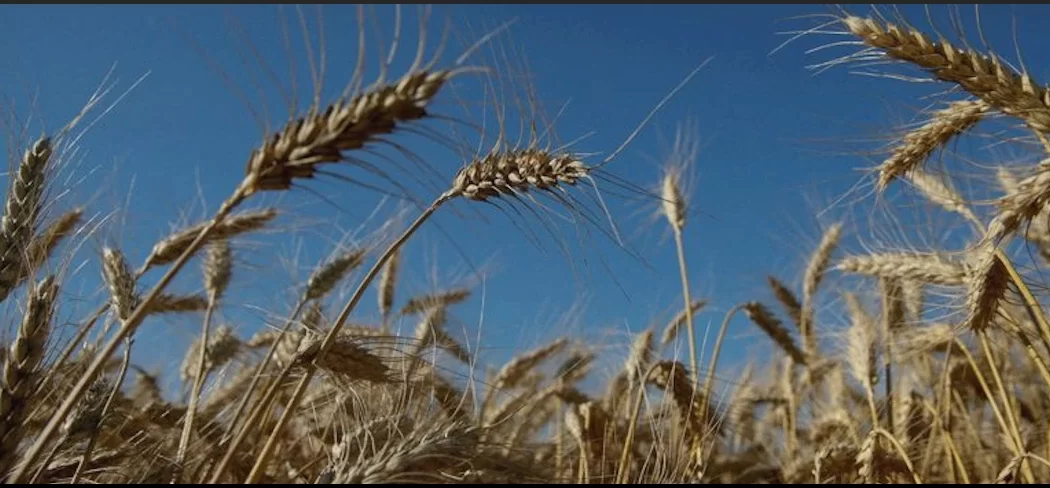by Lucas Leiroz, published on InfoBRICS, May 31, 2022
Once again, US irresponsible attitudes are threatening global food security. Recent reports point out that Washington is intensifying the smuggling of Syrian wheat, importing the product from regions illegally occupied by foreign troops and paramilitary militias. This situation is a strong affront to the Syrian sovereignty and has a negative impact on global efforts to reduce hunger and poverty.
Russia’s Permanent Representative to the UN, Vasily Nebenzia, said on May 25 that US importers are significantly increasing their purchases of Syrian wheat, continuing the country’s strategy of maximizing imports from regions in crisis and conflict, such as Syria and Ukraine. In addition to grain, oil is being imported on a large scale, taken from regions over which the legitimate Syrian government has no control.
These were some of his words:
“The United States continues to loot the natural and agricultural resources that belong to the Syrian people (…) [The US] expands its illegal trade in Syrian grain and oil and smuggles them outside the border (…), looting the Syrian wheat and oil, which are the basis for addressing the energy and food crisis”. In his speech, he also emphasized the current situation of those US-occupied areas from which oil and wheat are being imported, stating that “civilians in the areas occupied by the United States in Syria live under unacceptable humanitarian conditions and there is no accountability for crimes”.
This situation in Syria, although intensifying now as the world approaches a global supply crisis, began many years ago. For two decades, Syria was the only Arab country that was self-sufficient in wheat, also maintaining a high surplus that guaranteed it exporting capacity. In 2007, wheat plantations occupied crops totaling 1.7 million hectares and produced a total volume of more than four million tons of grain. The situation began to deteriorate as a result of the West-financed war against the legitimate government. In 2012, a year after the start of the conflict, Syria was for the first time forced to import wheat flour. And since then the country has become absolutely dependent on grain imports for its food security.
As the war escalated, the Syrian government lost control of some of the main wheat producing areas, which came under the control of paramilitary groups of the US-led Syrian Democratic Forces (SDF). After the unauthorized US intervention, American troops were deployed in these zones and ensured the direct flow of goods out of Syria, causing the Syrian government to lose almost its entire production. In every region that rebel forces advanced, local farmers were prohibited from selling their grain to the government in regional agricultural markets. All production was confiscated by US and paramilitary forces and then immediately shipped abroad. A similar process happened with oil, whose producing areas were a special target of the American occupation.
Commenting on the case, Taleb Ibrahim, a Syrian political analyst and deputy director of the Damascus Center for Strategic Studies said:
“The US began the great organised robbery in Syria five years ago. The regions where they are stealing oil and grains are the most productive parts of Syria, as an example the eastern parts of Syria where the US established the illegal military bases are providing Syrian people with 90% of oil products and 80% of grain. At the same time the US has imposed heavy sanctions on Syria to prevent the Syrian government from importing the most important necessities for the Syrian people, which is a war crime, like what had happened in Iraq, Libya, Cuba, North Korea, and other countries (…) The Western countries are taking the whole world for an international famine, they do not care about humanitarian considerations”.
It is important to note how these allegations come at a time of particular concern for the global food supply. The conflict in Ukraine damages world trade of grains and fertilizers, in addition to a series of sanctions imposed by the West that obstruct the flow of capital and goods. As the Ukrainian government, militarily defeated and economically bankrupt, insists on taking the fight forward, the situation becomes even more dangerous.
In this context, a true global race for food is on the rise, with countries looking to store grains to ensure food security in the long term. The West, in this sense, has acted in a rather complicated way, adhering to a predatory import of Ukrainian wheat grains in exchange for military aid in the conflict. Tons of Ukrainian wheat are being exported daily to the US and Europe, while the country’s population and the soldiers themselves suffer from growing hunger.
Nebenzia also commented on this issue in his speech:
“Grain are being carried out of Ukraine actively using railways and using barges on the Danube but where is this screen going? We have reason to suspect that this grain is not being used to feed the hungry in the Global South, but it’s being stored in grain storage of a number of different European countries”.
As the situation tends to get even worse in the coming months, it is urgent that the matter becomes an international concern and that the West is obliged by the UN to fit its methods of obtaining grain into the regulations applicable to each case. It is illegal for the US to import Syrian grain without authorization from the Syrian government, just as it is unlawful for Zelensky to sign agreements to arbitrarily export grain in exchange for weapons. Either international organizations take control of the situation, or their omission will generate global hunger.
Lucas Leiroz is a researcher in Social Sciences at the Rural Federal University of Rio de Janeiro and a geopolitical consultant.
 Syria Support Movement solidarity with the Syrian people
Syria Support Movement solidarity with the Syrian people





